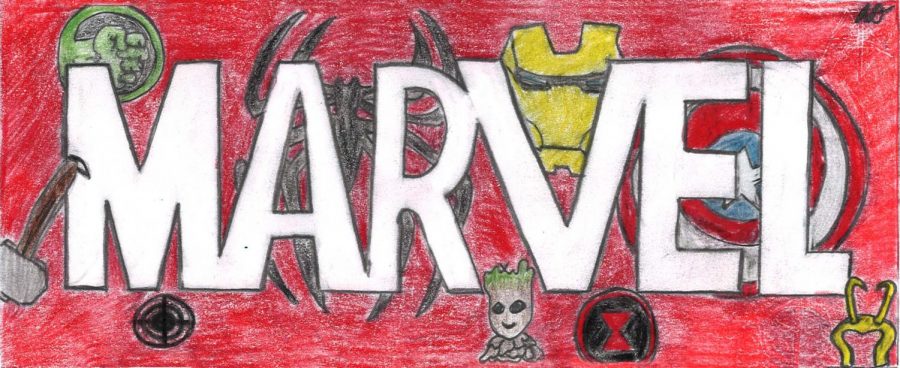Comic books unite generations of readers
January 25, 2019
With the recent death of Stan Lee, comic book fans all over the world have expressed how he has impacted their lives.
Lee, with the help of other creators such as Steve Ditko and Jack Kirby, created well over 100 beloved characters, like Iron Man and Hulk, to lesser known characters like the Living Tribunal.
While millions of fans reflect on the importance of Lee in their lives, it is hard not to acknowledge the comic book community as a whole.
There is a draw from these books that have enthralled fans for years and will continue to garner fans for years to come. Brendan Roark, senior, was introduced to comics by his grandfather, which sparked a fascination that has lasted ever since.
“My grandpa asked me if I wanted him to read me a story… he grabs the first issue of ‘Amazing Spider-Man’ and he started reading it to me,” Roark said.
Grandparents and parents share the stories they cherish with their children, which can then lead to those kids becoming fans themselves. Comic books can become more than just stories; they can become a method generations use to bond.
“My dad is really into comic books and [he] took me the first time I ever went to a comic book shop,” Aiden Mendoza, freshman, Said. “He bought [me] a Spider-Man comic book and it still holds a special place in my heart.”
Although comics can focus on a fantasy world where evil roams the streets, there can be deeper undertones that tie stories to the real world.
“[I enjoyed] the way the stories were intertwined with social commentary,” Adam Depew, English teacher, said.
An example of these stories is the “X-Men” comics, which are about “mutants” who are born with incredible powers. The X-Men were created in the 1960’s, and since their inception they have been a metaphor for any group that faces prejudice because of the way they were born.
“It came along the minute I thought of the X-Men and Professor X. I realized that I had that metaphor, which was great. It was given to me as a gift. Cause it made the stories more than just a good guy fighting a bad guy,” Lee said in a Rolling Stones article.
The hate the heroes face has represented racial discrimination and homophobia and gives those who have experienced such discrimination, characters that they can relate to on an emotional level.
Comics that reflect readers’ struggles trigger an emotional response that strengthens the story. Spider-Man’s popularity can be contributed to how relatable his origin story can be.
“He’s a high schooler who gets bullied a lot, but then one day he goes to a science fair and gets bitten by a radioactive spider [and then becomes] Spider-Man,” Roark said. As a character, Peter Parker can represent the reader, and when he acts heroic as Spider-Man, it can inspire the reader.
At their core comics are great stories, and like all great stories, they are meant to teach and inspire. No matter how dark the story gets, or how dark the real-world gets, there is always hope that the hero will overcome evil and save the day. In the words of a comic legend, “Excelsior!”





Mitch hunter • Jan 29, 2019 at 2:28 pm
Love this article, I myself am a huge marvel fan and have grown up with it all my life and love all their content dearly so this article was a good, heart warming peice of work?